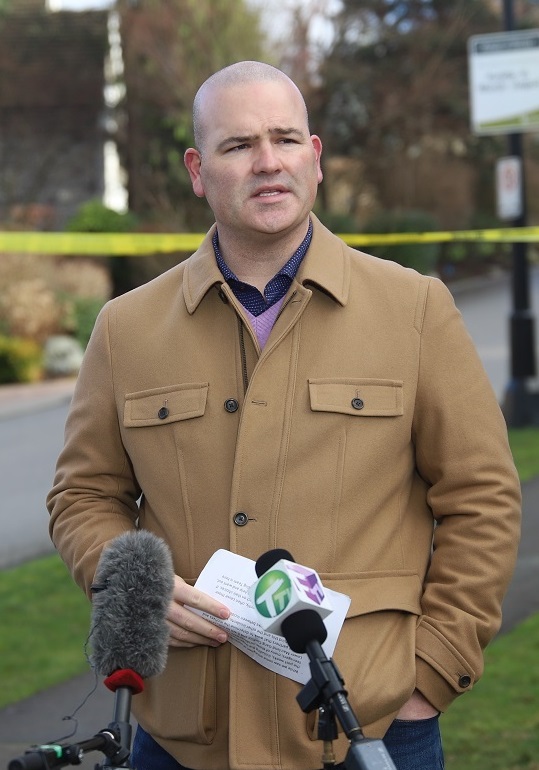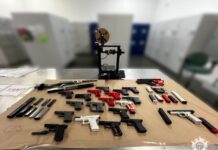BY RATTAN MALL
THE current retaliatory gang violence in the Lower Mainland is something that has occurred in the past as well when high profile gangsters were killed.
Gary Kang, 24, was fatally shot at his family’s residence in Surrey on January 8.
As The VOICE reported, Vancouver Police said in 2018 that the Kang group is “composed of members of the Kang family, including Sameet Kang, Gary Kang, Randy Kang (deceased), their parents, and other close associates … The Kang Group is closely aligned with the Red Scorpions Gang, specifically with Jamie Bacon and Kyle Latimer. It’s believed they share common interests in drug lines, and that they commit violence at the behest of or for one another. The Kang / Latimer Group has been in conflict with multiple groups over the past 18 months and their allegiances remain fluid and ever-changing.”

On the gang landscape side of things, there really haven’t been any major shifts or changes, and it basically remains the same as it was in 2019 when The VOICE published an article titled: “Three columns of the Lower Mainland gang landscape: Wolf Pack + Brothers Keepers + Duhre-United Nations.”
Top gang expert Staff-Sgt. Lindsey Houghton of the Combined Forces Special Enforcement Unit – BC (CFSEU-BC) told The VOICE on Thursday that there are still three columns. You have the United Nations column, and the Wolf Pack column that is comprised of the Red Scorpions, Independent Soldiers and some Hells Angels.
Houghton added: “Under those two columns you’ve got lots of different people and groups – and then in the middle, starting in about 2017, inserted into the middle of all this was the Brothers Keepers and their groups.”
The Lower Mainland Gang Conflict as it’s come to be known, sort of evolved from the Townline Hill conflict out in Abbotsford. A number of different localized conflicts merged with that to become a bigger regional conflict.
Houghton said: “So that hasn’t changed – that still continues. What we’ve seen in the last couple of years is an increase in internal fractures and connected to that is side-switching.”
‘NOTHING REALLY NEW’
Houghton said when people phone to ask what’s going on and expect to hear that something brand-new is happening, it’s hard to explain that there has been no monumental change in the gang landscape.
“Some of the faces and names have changed because people go to jail, they die or they leave, whatever that is. But when it comes to the main “columns”, the side-switching, the setting each other up, trying to rip each other off – those kind of things – that’s all the same. … There’s nothing really new,” he said.
Houghton added: “It’s boring to say that, because we would love to be able to say ‘well actually yeah, there’s one thing brand-new and this is the reason.’ But there really isn’t!”
He told this writer: “It’s sort of an evolving combination of all of those things that we’ve been talking about for several years now.”
Houghton pointed out that things still connect back in some ways to the mid-to-late 2000s and Gurmit Dhak’s murder in 2010 and Jonathan Bacon’s murder in 2011. “Some of those people and groups are still around and those conflicts kind of get passed down like batons to some of the newer people,” he added.
He also noted: “It’s not really new, but one thing that we’ve mentioned and I know others have mentioned a few times is like people from outside of BC being brought in to carry out violence.”
Twenty-year-old Calvin Powery-Hooker and 21-year-old Nathan De Jong of Alberta were charged with murdering Suminder ‘Ali’ Grewal of the Hells Angels in Surrey in 2019, for example.
Houghton mentioned the joint investigation that the CFSEU-BC did a few years ago with Edmonton Police on “the people that were coming here and then going there.”
He also noted that in 2008-2009 the Jamie Bacon-Red Scorpions group was fighting against Barzan Tilli-Choli of the United Nations Group. “And it was kind of those two heavyweights going back and forth,” Houghton added.
But he pointed out: “We really don’t have that right now where it’s like two major heavyweights. It’s a lot of little groups coming and going and switching sides and running around. It’s probably more chaotic, maybe, and unpredictable than it was back then in some ways.”
THE SAME 2019 SCENE
Houghton told The VOICE: “To answer the question … ‘Can you tell me one thing that’s different now than it was like two years ago?’ … there’s really not one thing.”
He said: “The way I’ve described it is like when you are boiling water on your stove to cook like spaghetti or something and there’s that fine point where it’s just below boiling over where you turn the temperature down a little bit and it’s just about to boil, it’s like simmering, but you know that if you turn the temperature up just a touch, it’s going to boil over. That’s what it’s often like. There is a very fine line between the boiling over and the ‘sort of simmering, about to boil over.’”
Houghton added: “And when we see these cycles come around, because it is very cyclical, it’s when the temperature’s been turned up a little bit and it should be no surprise to people when someone with a higher profile like a Kang gets murdered – those kind of people – there’s going to be retaliation and increase [in violence] because not only have we seen it before but we’ve said it many, many times when we look back at the murder of Gurmit Dhak, [and] the murder of Jonathan Bacon, there were dozens of retaliatory incidents connected to those over several years and including today.”

‘END GANG LIFE’ INVESTMENT
Houghton said: “So when people express shock, I have to temper my reaction in some ways and say ‘Look, we’ve been talking about this for years. This should not be a surprise. Let’s instead talk about what some of the issues and causes are around why people are attracted to this lifestyle and let’s use it as an opportunity as we’ve done many times with some of the work that we do with End Gang Life (www.cfseu.bc.ca/end-gang-life/) and things like that. Let’s use it an opportunity to maybe get one or two people out if we can right now if they’re questioning what their role in life is, let’s get them out – and we’ve been able to do that successfully.”
When this writer asked Houghton about the success of the program, he replied: “It’s been very, very successful and we’ve had significant impact in terms of not just saving people’s life but stopping their ‘trajectory’ in the gang lifestyle – either stopping them from becoming a victim or potentially stopping them from becoming a perpetrator down the road, because really as we know, it’s inevitable that you are either one or both of those at some point.”
When I asked Houghton if the program needed more funding, he replied: “I wouldn’t call it an issue, … but for every dollar we spend on positive services to get an individual out of gangs and sort of remove their involvement and provide them pro-social things in their lives like get them employable, get them counselling, those kinds of things, like get them out of gangs, we can potentially save – and we are saving – what I would call “the system”, especially the policing system, millions of dollars, because you know how expensive gang homicide investigations are. Like we are talking millions of dollars for an IHIT [Integrated Homicide Investigation Team] investigation or even some of our [CFSEU-BC] investigations. So, if we can spend thousands of dollars, it’s pennies compared to what you might spend should someone be shot and the costs connected to the medical system, or if they have to be jailed and those kind of things. Those are very expensive things.”
Houghton pointed out: “It’s not a secret that if we can expand our capacity to be able to serve more people, we could potentially save “the system” even more money.”
The pilot started in November of 2016 and they have had well over 400 people connect with them.
Houghton said: “We’ve helped them. At any given time right now, we are actively “exiting,” providing services every day to about 60 people.”
He pointed out: “It’s still the only one of its kind in Canada where its embedded within the police. There’s some people who didn’t think it would work and we’ve proven them wrong. Because a lot of people didn’t think that gangsters would reach out to us for help because of what they do and their mistrust for the police, but we have dozens of testimonials of families and people saying how we’ve changed their life for the better. It’s hard to put a price tag on that and it’s hard to quantify that in some ways.”
Houghton added: “People will reach out to us for different reasons at different times and it might be because they’ve just gotten out of jail, it might be because their mom is begging them to, it might be because their best friend was murdered, or it might be because they’ve been shot and they’ve just got out of hospital. There’s different triggers for everybody.”












